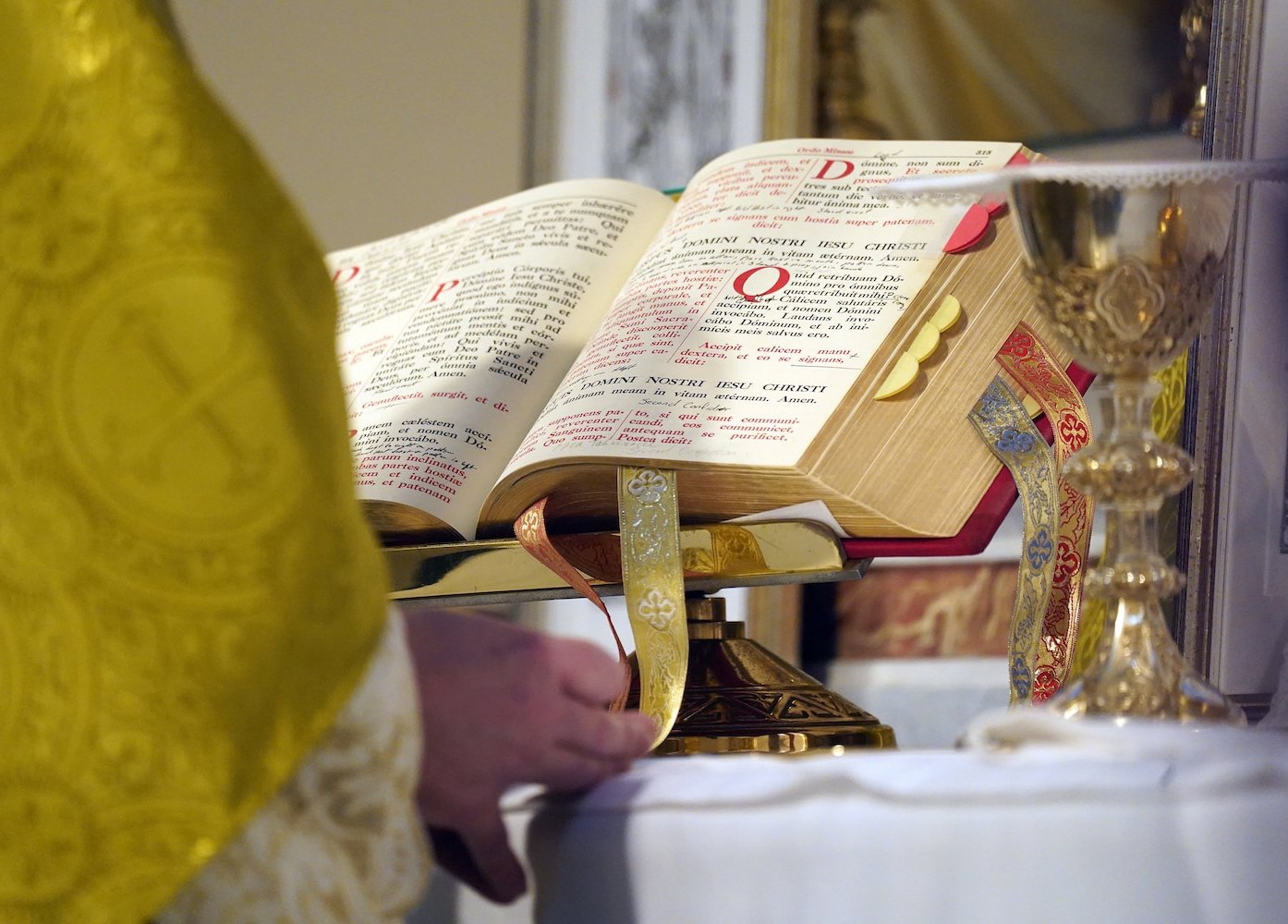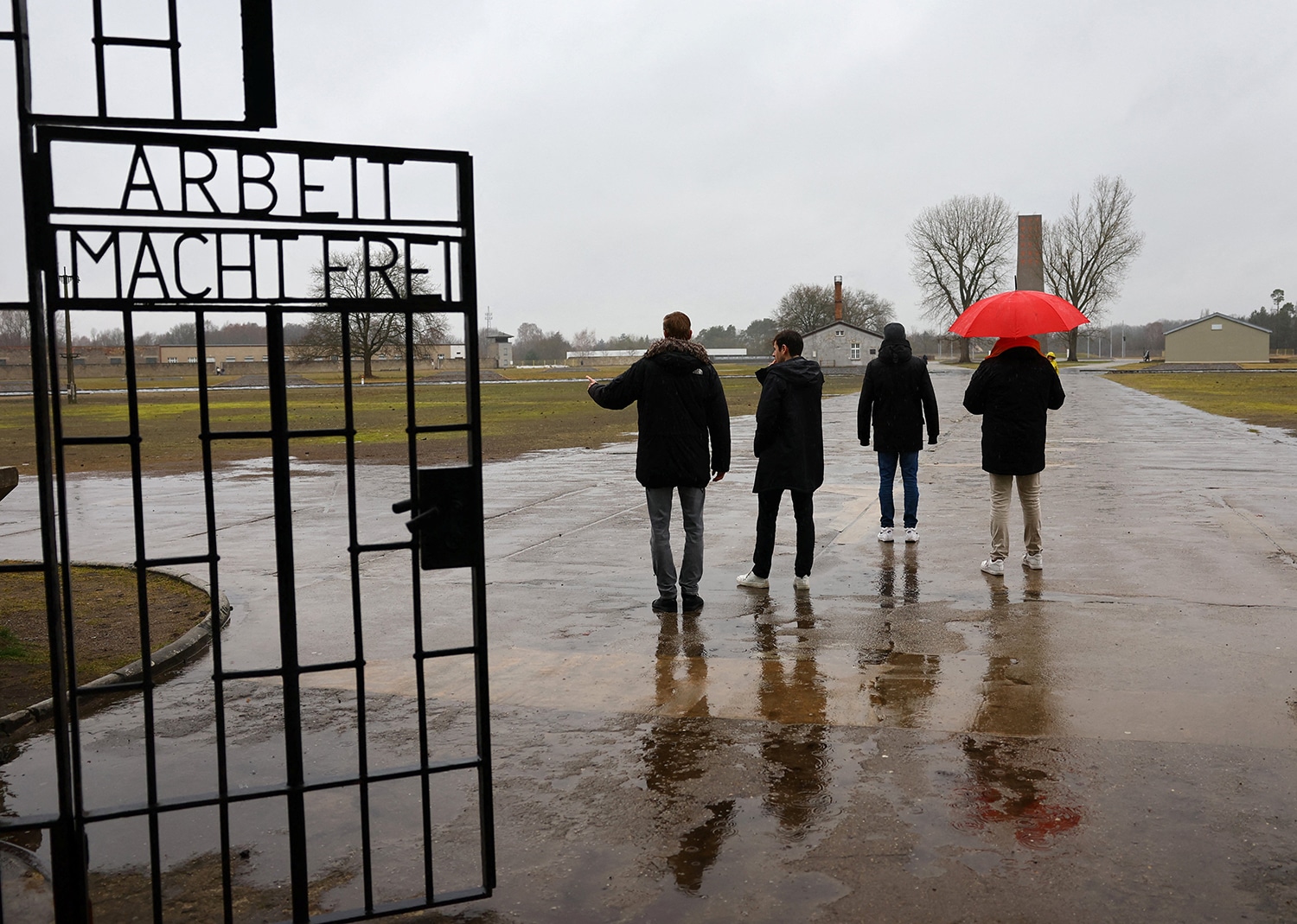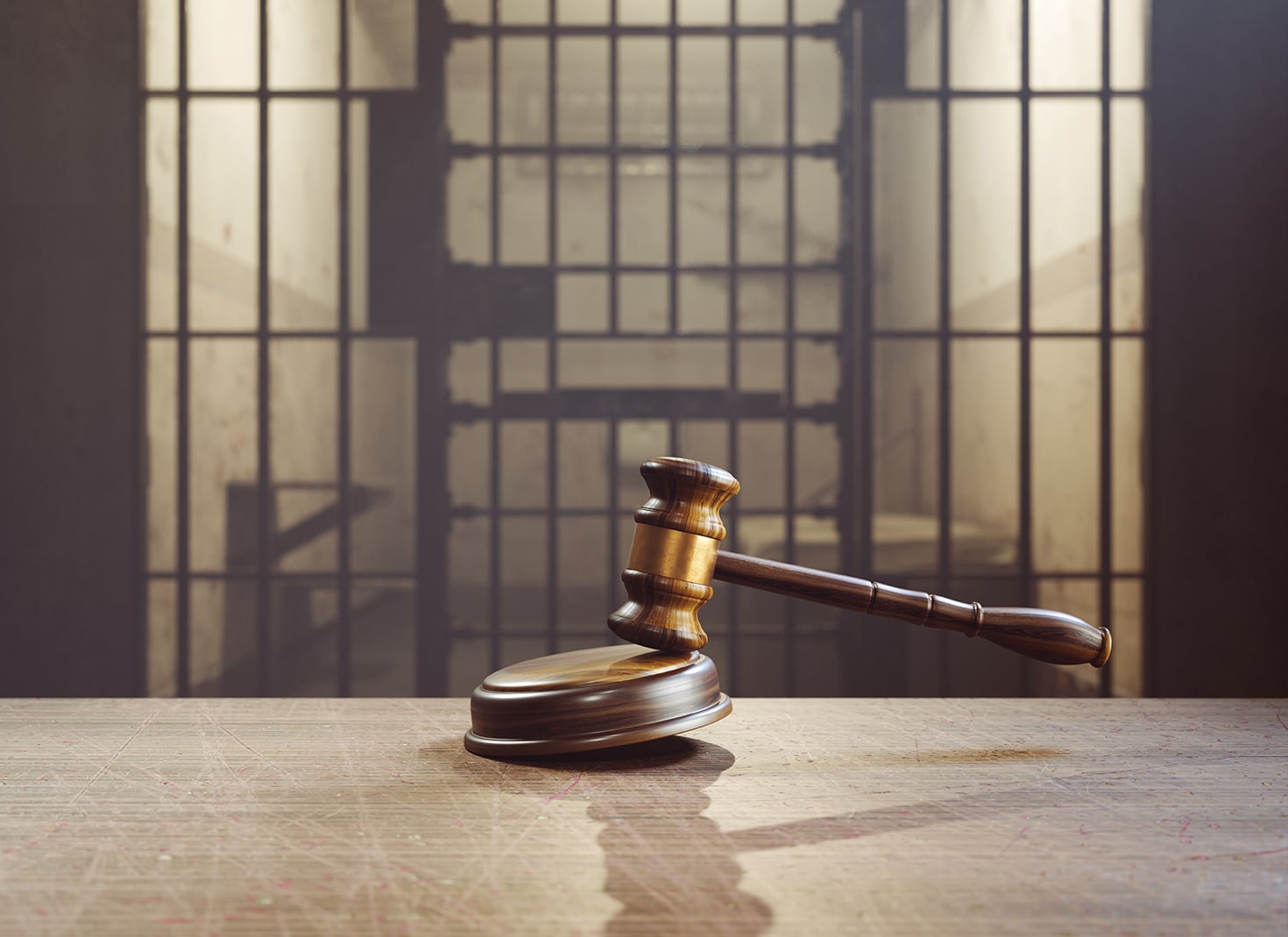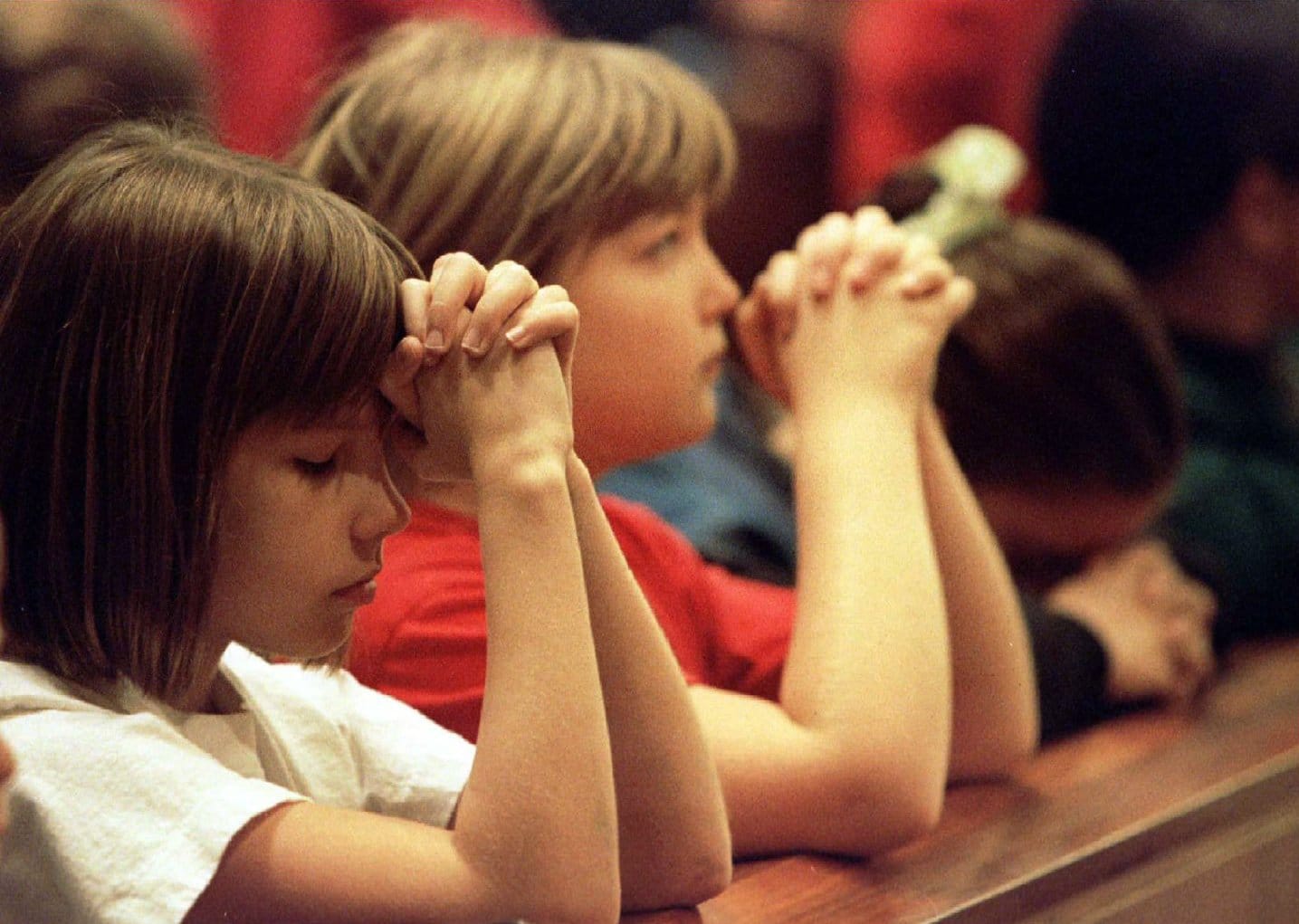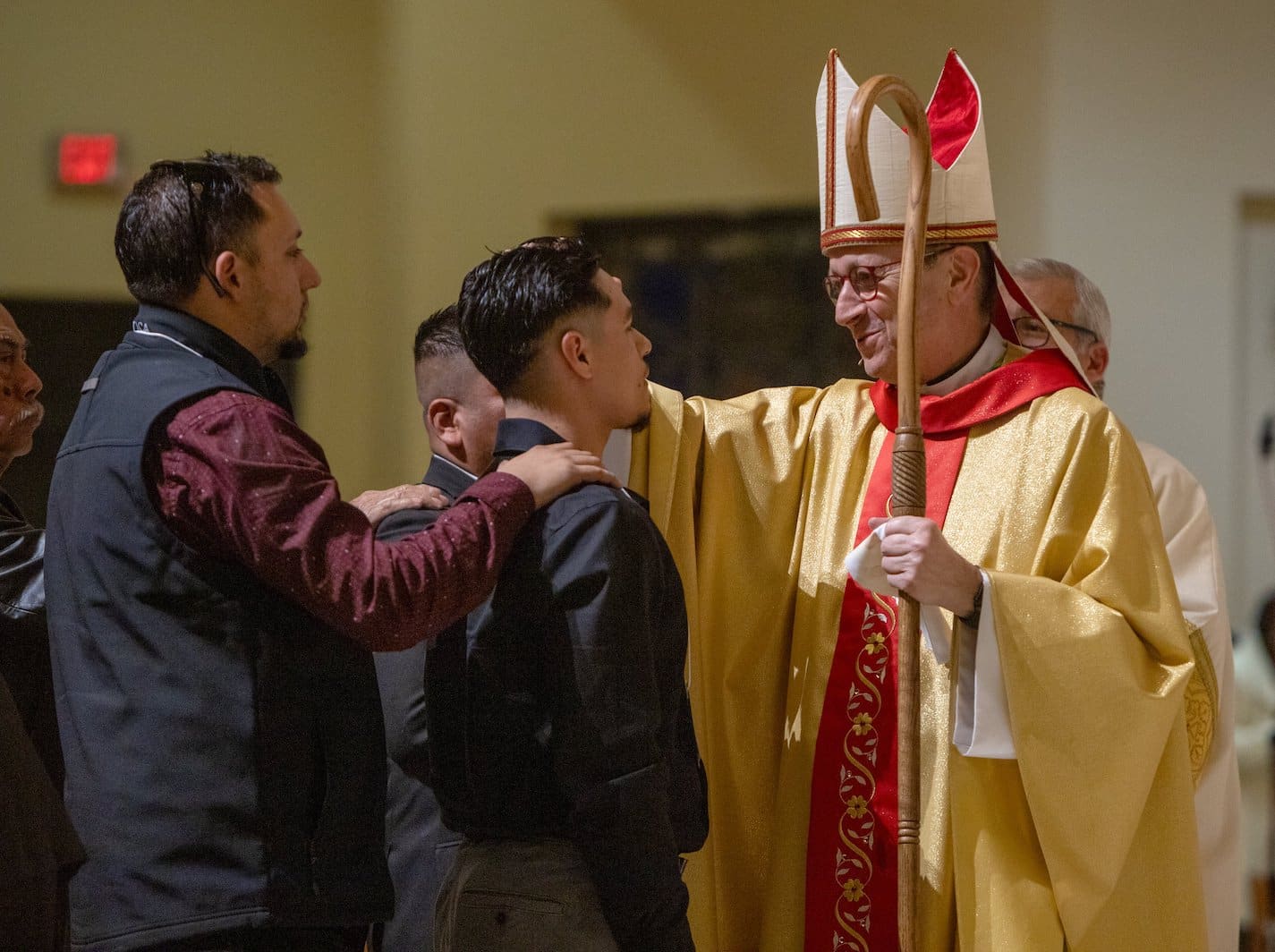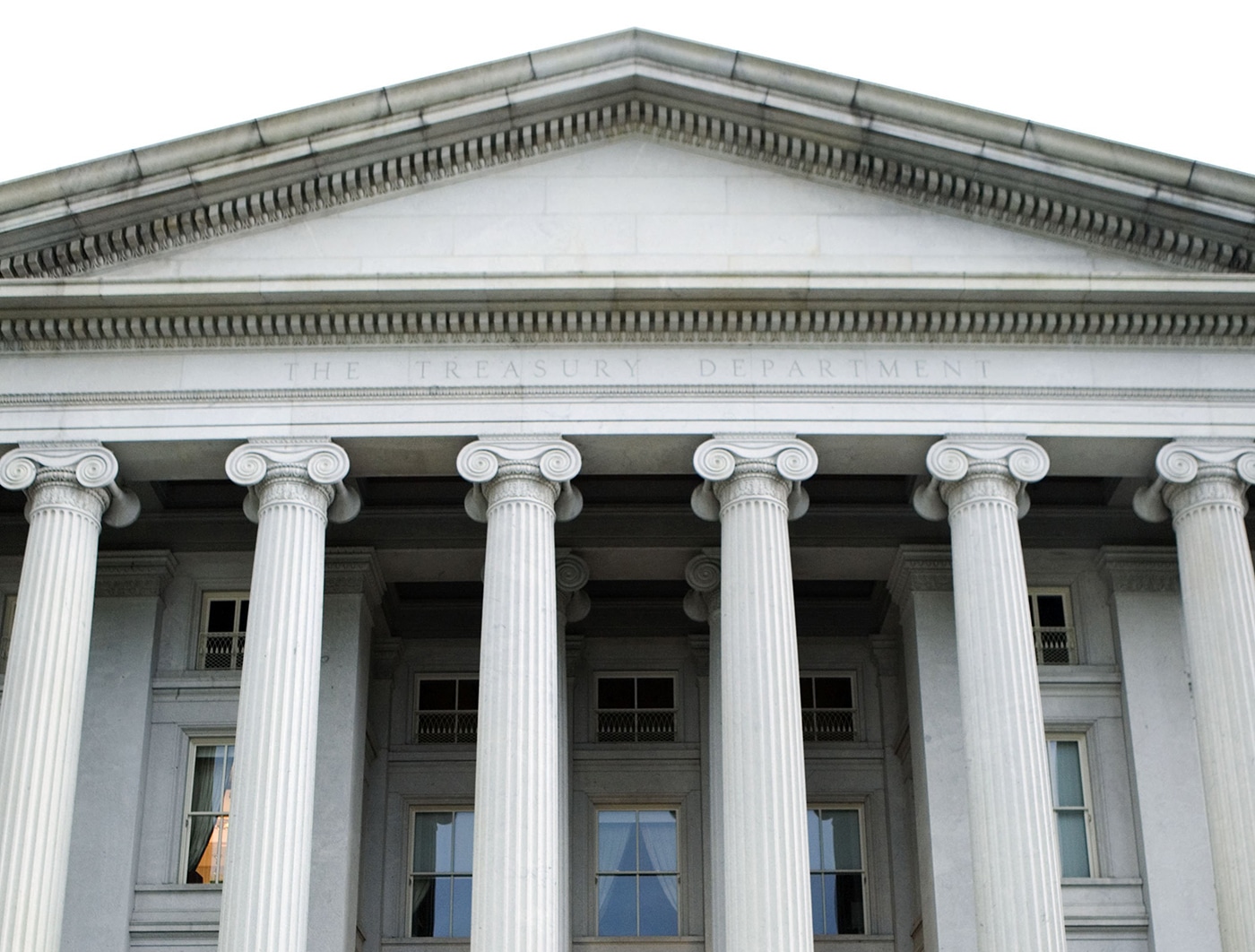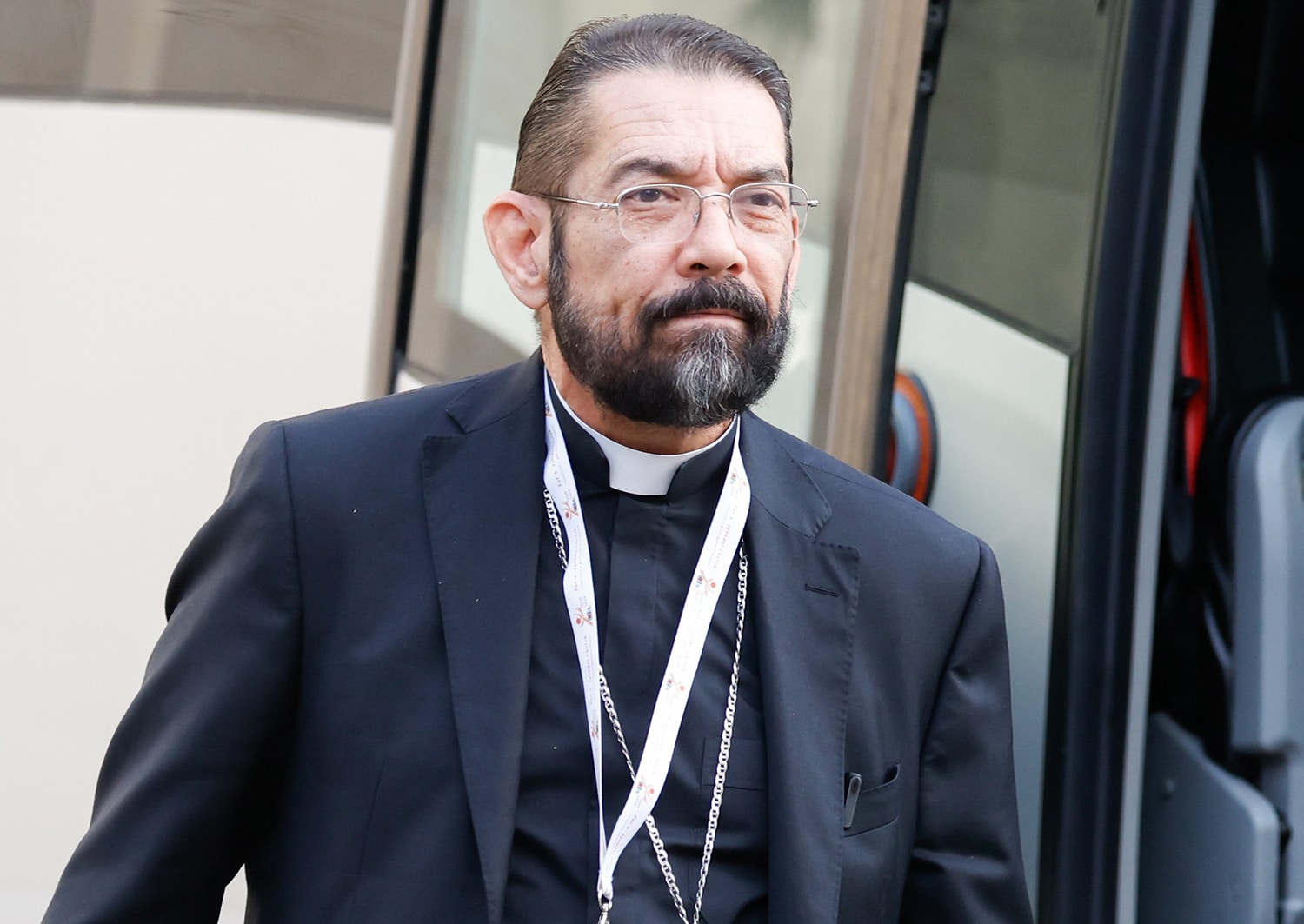WASHINGTON (OSV News) — A Latin Mass that took place at the U.S. Capitol in January was not authorized by the Washington Archdiocese, which has procedures in place for such requests, church officials told OSV News.
First reported by The Pillar, a Mass using the 1962 Roman Missal — the missal in use prior to the Second Vatican Council — was held in a room of the U.S. Capitol Jan. 23. The Mass was organized by the Arlington Latin Mass Society to mark the first anniversary of a leaked FBI memo that suggested some “radical traditionalist” Catholics pose threats of racial or ethnically motivated violence.
Organizers of that Mass, often referred to as a “Traditional Latin Mass,” suggested it was believed to be the first such Mass held on Capitol grounds. Library of Congress records show Catholic priests have officiated in the U.S. House as early as 1826, but it was not immediately clear what type of liturgy or prayer would have been involved.
Asked for comment on the Latin Mass held in the Capitol complex, a spokesperson for the Archdiocese of Washington told OSV News in a statement that it “was not asked for permission to hold a Traditional Latin Mass outside of the three designated Archdiocese of Washington churches where this Mass is regularly celebrated, in keeping with Pope Francis’ guidance in ‘Traditionis Custodes.'”
Pope Francis’ July 2021 apostolic letter “Traditionis Custodes” reversed the late Pope Benedict XVI’s wide permissions given in 2007 for diocesan priests to celebrate Masses with the 1962 Roman Missal in order to pastorally provide for those Catholics attached to the older form. Pope Francis rolled those permissions back over concerns that the older celebration of Mass was being abused to harm the church’s unity, including undermining the authority of the Second Vatican Council and the post-conciliar reform of the Roman rite.
Those three locations authorized by Washington’s archbishop, Cardinal Wilton D. Gregory, include one within the District of Columbia itself, the Franciscan Monastery of the Holy Land in America, and two in suburban Maryland, the Chapel at St. John the Evangelist Parish in Forest Glen and the Mission of St. Dominic in Aquasco.
A breach of custom and courtesy
Msgr. Charles Pope, the archdiocese’s coordinator for the celebration of the extraordinary form of the Latin Mass, told OSV News that it is customary for those seeking an exception to limitations on the older missal within the archdiocese to reach out to the chancery, or to him personally, to start the request for permission.
Msgr. Pope added that it is also a norm for those seeking to hold Masses in the Capitol complex — in either the normative or older usage of the Roman Rite — to reach out to the priests whose parish boundaries include the House and Senate buildings: St. Peter’s and St. Joseph’s on Capitol Hill, respectively.
“So even if it were a Novus Ordo Mass in English … it would be a courtesy extended to the local pastor,” to reach out to him about the Mass, Msgr. Pope said.
The Pillar report did not name the priest who celebrated the Mass.
“I just think it’s unusual that any priest would ever agree to say a Mass where he knows there might be, I don’t know, some controversy,” he said, indicating that a priest in good standing would and should check with the local ordinary when approached with such a request.
Cancelation concerns
One of the organizers of the Capitol Mass told The Pillar that they “had to be a little discreet” and did not seek permission from the archdiocese to hold the Mass because “the concern was that Cardinal Gregory calls the Speaker’s office and cancels the thing on us.”
Asked about that comment, Msgr. Pope said that requests for exceptions to the archdiocesan implementation of “Traditionis Custodes” are “respectfully received” and considered on a case-by-case basis.
“I understand the anxiety and frustration that a lot of traditional Catholics have faced about” Pope Francis’ restrictions in “Traditionis Custodes,” Msgr. Pope said, emphasizing Cardinal Gregory has simply sought to implement the pope’s directive. “Even when there’s frustration with what authorities do, if they have some protocols and things, I still think it’s important to try to follow them because, well, Christ became ‘obedient even unto death.'”
The Pillar’s co-editor Ed Condon, a canon lawyer by training, in a Jan. 26 email to Pillar readers described the Capitol Mass as “transgressive, and canonically illicit,” explaining he did not actively participate in the liturgy or receive holy Communion, but covered it strictly as a journalist.
Msgr. Pope said, “Obedience is at the heart of what we need in the Church, to legitimate authority who ask legitimate things of God’s people.”
“I think the word ‘legitimate’ is important,” he continued. “We all know that there’s going to be times where our first loyalty is to God. We have to say ‘no,’ if somebody asked us to do something evil; but if somebody asked us to do something — even though we don’t like it — like asking permission or something … that is something we generally ought to do.”
FBI document
In that since-retracted FBI document, an analyst at the FBI’s Richmond Division said “Radical Traditionalist Catholics” are “typically characterized by the rejection of the Second Vatican Council.” The memo said the ideology can include an “adherence to anti-Semitic, anti-immigrant, anti-LGBTQ and white supremacist ideology.”
While the memo itself differentiated between “radical traditionalist” Catholics as “separate and distinct” from “traditionalist Catholics,” or Catholics who “simply prefer the Traditional Latin Mass and pre-Vatican II teachings,” some accused the bureau of labeling Catholics as a threat or unjustly scrutinizing their worship.
After the memo, dated Jan. 23, was leaked, an FBI spokesperson told OSV News, “While our standard practice is to not comment on specific intelligence products, this particular field office product — disseminated only within the FBI — regarding racially or ethnically motivated violent extremism does not meet the exacting standards of the FBI.”
The memo was retracted and condemned by both Attorney General Merrick Garland and FBI Director Christopher Wray, the latter of whom was initially appointed by then-President Donald Trump.
The memo named groups that identify as Catholic but have taken adversarial positions regarding either the Catholic Church’s leadership or its official teachings — including one group denounced by its local bishop as “blatantly antisemitic” and forbidden by the Vatican from calling itself Catholic.
Among those named in the FBI memo is also far-right antisemitic personality Nick Fuentes, who publicly promotes himself as a Catholic and whom the memo says has ties to “white Christian nationalism.”
Fuentes in a Dec. 8, 2023, livestream called for “perfidious Jews” and others to face “the death penalty” when his America First movement takes power, saying “this is Christ’s country.”
“They must be absolutely annihilated when we take power,” he said.
The term “perfidious Jews” was invoked for centuries in the older Roman Rite’s Good Friday liturgy until St. John XXIII, the pope who called the Second Vatican Council, ordered it removed in 1959 — just 14 years after Nazi Germany’s genocide of six million Jewish men, women and children across Europe ended. Historically, Good Friday was one of the most dangerous days for Europe’s Jews, who could suffer violence or death by Christian mobs.
Asked about the contents of the FBI memo itself and the ensuing controversy, Msgr. Pope said, “I do hope what the director of the FBI said is true, that is a very limited field office issue that came up at that field office, and we’ve dealt with it.”
But he added that “Congress has a right to ask those questions (about how the FBI dealt with it) and receive clear answers, rather than all the obfuscation and vagueness that we’re getting.”
Msgr. Pope said he also hopes that those in positions of authority, and Catholics themselves, study the true meaning of some of the Church’s phrasing that could be misconstrued as violent. For example, he said, sometimes the rosary is referred to as a weapon.
“It’s a spiritual weapon,” he said, adding, “it’s directed at the devil,” not other people.
“When people take this stuff literally, it just shows they haven’t done the kind of homework they should do — and they should ask people who talk like this, ‘What do you really mean?'” Msgr. Pope said.
A spokesperson for the Diocese of Arlington, Virginia, told OSV News the diocese has no relationship with the Arlington Latin Mass Society, and the diocese would not be involved in liturgical permissions outside its jurisdiction.
The Arlington Diocese’s website states that eight locations throughout its boundaries have the older Latin Mass available “for the approximately 2.5% of local, Mass-attending Catholics who prefer this liturgical form.”
Those locations are dispersed throughout its geographic boundaries, with several located in Washington suburbs.

